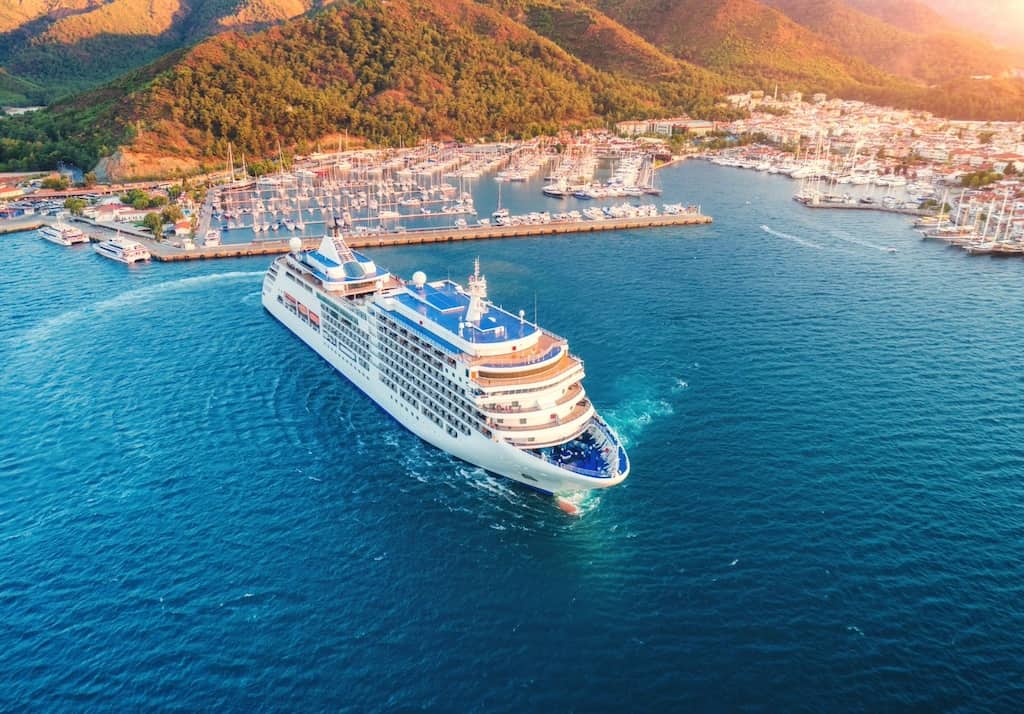
The top-rated maritime accident attorneys at Lipcon, Margulies & Winkleman, P.A. have extensive experience advocating for victims’ rights across the globe ever since we opened our doors in 1971. Over the past 50+ years, we have consistently recovered the maximum compensation available for our clients. We are proud to have 16 full-time maritime and personal injury attorneys working at our seven office locations across the United States. Collectively, we have recovered over $450 million.
With multiple accolades and awards, including four of our cruise ship accident attorneys being named to “Best Lawyers” ® in America, and Lipcon, Margulies & Winkleman, P.A. having been selected to “Best Law Firms” ® by US News & World Report for nearly a decade, our firm has the unique training and experience needed to win.
Whether you or someone you love suffered catastrophic injuries in a maritime accident, our unparalleled success as litigation attorneys gives us the confidence needed to secure a successful outcome. We have successfully represented literally thousands of crewmembers and passengers that have been injured or killed while at sea.
There are few, if any, recent pieces of federal law that have benefitted the cruising public as much as the Cruise Vessel Security and Safety Act of 2010.
A Brief Look At The Cruise Vessel Security And Safety Act Of 2010
The Cruise Vessel Security and Safety Act of 2010 (CVSSA) is U.S. federal legislation designed to improve the security and safety of passengers and crew on cruise ships. Signed into law by President Obama, the Act introduced a range of measures that cruise ships must implement to comply with the new standards.
The CVSSA represented a significant step in regulating the cruise industry to ensure a higher standard of safety and security for those at sea. The Maritime Administration (MARAD) provides further support and oversight in the implementation of the Act’s provisions.
Things You Should Know About the Act
Key provisions of the CVSSA include:
Vessel Design and Equipment Requirements: The Act established specific requirements for the design and construction of cruise ships to enhance safety. This includes the installation of peepholes in passenger and crew cabin doors, the use of security latches, and the provision of time-sensitive security and safety information.
Crime Reporting and Logbook Requirements: Cruise ships are required to report all crimes to the U.S. Coast Guard and the FBI, and maintain a logbook of all alleged crimes which must be made available to law enforcement upon request.
Sexual Assault Prevention and Response: The Act mandates that cruise ships carry equipment and materials for the prevention, detection, evidence collection, and treatment of sexual assault, alongside trained medical staff capable of conducting forensic exams.
Passenger and Crew Security Training: Training programs for crew members are required to cover crime prevention, detection, evidence preservation, and reporting of criminal activities.
Video Surveillance to Monitor Crime: Cruise ships must implement and maintain video surveillance systems to monitor crime and ensure the safety of passengers and crew.
Public Access to Information about Crimes: The Act requires the Department of Transportation to maintain a website providing a numerical accounting of alleged crimes on cruise ships that dock in the United States, which is accessible to the public.
Victim Support: The Act requires cruise lines to provide support services for victims of crime, such as a confidential hotline and access to sexual assault forensic examiners.
Working with a skilled cruise ship lawyer from Lipcon, Margulies & Winkleman, P.A. is important when dealing with cases that may involve violations of the Act because even if a cruise line complies with the Act, that does not mean the cruise line has acted reasonably or safely to deter cruise ship assaults or other crimes that take place onboard cruises.
What a Maritime Accident Attorney From Lipcon, Margulies & Winkleman, P.A. Can Do for You
Our founding attorney Charles Lipcon’s legal advocacy has shaped the way the legal system in the U.S. handles injuries and accidents on the water, and our attorneys regularly appear as expert guests discussing maritime injuries and accidents on respected talk shows and national news programs. You can rely on our team to hold liable parties accountable and protect your rights throughout the claims process.
Our team of maritime accident attorneys at Lipcon, Margulies & Winkleman, P.A. have more than 250 years of experience advocating for victim’s rights. Several of our attorneys have been named to “Best Lawyers” ® in America and the firm has been recognized as one of the “Best Law Firms” ® for almost 10 years by US News & World Report.
Contact us immediately through our secured contact form or call our office at 877–233–1238 to schedule your free, no-obligation consultation and connect with an experienced and knowledgeable accident lawyer. We’ll discuss whether the Cruise Vessel Security and Safety Act of 2010 applies to your case, and how we can obtain the maximum compensation available under the law for you and your family.
Additional Resources
Cruise Ship Accident Practice Areas
- Cruise Ship Accidents
- Cruise Ship Rape
- Shore Excursion Accidents
- Seafarers Rights
- Class Action Lawsuits
- Cruise Passenger Disappearances
- Cruise Ship Asbestos Claims
- Cruise Ship Drowning Accidents
- Cruise Ship Overboard Accidents
- Cruise Ship Medical Malpractice
- Flowrider Accidents
- Tender Boat Accidents
- Cruise Ship Video Voyeurism Laws
- Gangway Accidents
- Cruise Ship Water Slide Accidents
Cruise Ship Lawyer Locations






